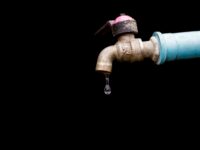A hot shower and pristine dishes shouldn’t be a lot to ask for, but sometimes it seems like it is. If you’ve been having trouble with the hot water supply in your home, there are many possible culprits. The following will examine some of the more common problems people can have with their water heaters and what needs to be done about it.
Utility Bill Is Absurd
Most people aren’t opposed to saving a little bit of money. Believe it or not, your water heater could be contributing to your sky-high utility bill. Turning down the temperature on your water heater can end up saving you a pretty penny without resulting in any changes in your experience of the water. This is also a lovely safety measure for those of us with sinks or showers that can get violently hot. The Department of Energy recommends keeping your hot water heater set somewhere around 120 degrees Fahrenheit. The default setting on most hot water heaters is 140 degrees, which means you might be paying to heat water to a temperature that you never even use it at.
Corroded Or Damaged Anode Rod
The anode rod is the part of your water heater that draws sediment out of your water. Sediment sticks to the rod while the water is being heated, and while this is incredibly effective, it means that over time the anode rod will corrode or deteriorate. Eventually, it won’t be able to continue attracting sediment because of this and will need to be replaced. The older your water heater, the more likely the anode rod has spent itself. Likewise, the more aggressively you soften your water, the faster the anode rod corrodes. The fastest way to tell whether you need to be sorting out an anode replacement or not is to take a look at it. If it seems like it’s been chewed up or is mottled, then you know it’s time to get a new one.
Leaks
Leaking is a common problem when it comes to all forms of plumbing, and a hot water heater is no exception. It’s important to note, however, that if there’s a small bit of water leaking from the bottom, this can simply mean that there is a normal level of condensation happening. It can also be caused by a leak in the heating element gasket. If the leak is coming from the top of the hot water heater, this might mean that there’s an issue with the inlet valve or indicate loose piping.When it comes to leaks, it’s a good idea to call an expert for water heater repair in Tulsa, OK to inspect the problem and make the necessary repairs as soon as possible to restore your hot water.
Tripped Breaker
If you have an electric water heater, it’s possible that, from time to time, the breaker is going to trip. If you notice suddenly there’s no hot water available, this might be the cause. Reset the breaker and then check the water again. If the hot water has returned, you’re good to go, but it might be worth thinking about the electrical setup. If a breaker was tripped, this could mean you were overwhelming a circuit within your home. This can sometimes happen if several high-requirement electrical devices like the microwave and the hairdryer are working on the same circuit. It’s a good idea to rearrange some of your devices to help ensure it doesn’t happen again. If that didn’t sort out your problem, and your water is still not being heated, this probably means you need a part replaced.
Tank Isn’t Big Enough For Your Needs
If your water is the right temperature early in the morning and then slowly becomes of the wrong temperature, this might be an indication that nothing is actually wrong with your hot water heater, just that the tank which stores the water once it’s heated isn’t big enough for your household. The water heater will continue to heat water, but at a slower pace than you’re using it. If this is the case, you might need to look into securing a bigger tank for storing hot water so that your system can build up enough water for you and your family overnight.
The above list includes the more common water heater problems, but this doesn’t mean there aren’t other issues that can occur. If you can’t seem to figure out why your hot water situation has gone awry, or if you don’t feel comfortable fiddling with breakers or looking for anode rods, call a water heater specialist. It’s always better to err on the side of caution when it comes to home repair projects you’re not familiar with.

















I wasn’t sure who to call when it comes to the water heater leaking, but I guess it’s a job for the plumber. Our house’s water doesn’t heat up at all anymore and we discovered our water heater was leaking in the basement. This is a big problem for our family since winter is coming soon and having to shower with cold water in winter isn’t a very nice experience to think of. We’ll look for a good plumbing service nearby and hopefully we can fix this issue as soon as possible.
By the way, tankless water heaters are less prone to leaks simply because they don’t have a tank for conserving water. And according to this source https://polestarplumbing.com/tips-tricks/earth-friendly-plumbing-fixtures, you can save hundreds of dollars on utility bills and thousands of kilowatt-hours of energy by switching to a tankless model.